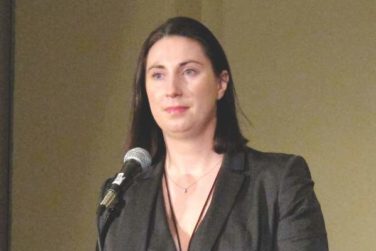FROM JAMA PSYCHIATRY
Youth who received at least 3 months of antipsychotics were about two to three times more likely to develop type 2 diabetes, compared with controls, a meta-analysis of 13 studies shows.
The risk was especially apparent for olanzapine, confirming “that [type 2 diabetes] risk with second-generation antipsychotics is not homogeneous, and that olanzapine treatment is a major modifiable risk factor,” said Dr. Britta Galling of Zucker Hillside Hospital in Glen Oaks, N.Y., and her associates. Youth should receive antipsychotics only if safer treatments have failed, for the shortest possible effective duration, with proactive monitoring of cardiovascular risk factors and counseling about possible adverse effects, healthy nutrition, and physical activity, according to the meta-analysis, published online Jan. 19.
The researchers searched PubMed and PsycINFO through May 2015 for longitudinal studies of antipsychotics and type 2 diabetes in children, adolescents, and young adults who did not have diabetes at baseline. The resulting studies included 185,105 individuals and 310,438 patient-years. Patients averaged 14.1 years of age (range, 2-24 years), were followed for an average of 1.7 years, and 60% were male (JAMA Psychiatry. 2016 Jan 20. doi: 10.1001/jamapsychiatry.2015.2923 ).
Antipsychotic exposure doubled the odds (95% confidence interval, 1.56-4.24; P less than .0001) and tripled the incidence (95% CI, 1.7-5.3; P less than .0001) of type 2 diabetes, compared with healthy controls. Antipsychotic-exposed youth also had double the odds and 1.8 times the incidence of type 2 diabetes, compared with psychiatric controls.
The multivariate analysis linked greater cumulative type 2 diabetes risk with longer follow-up (P less than .001), olanzapine exposure (P less than .001), and male sex (P = .002). However, the incidence of type 2 diabetes was lower in youth with autism spectrum disorders (P = .048), perhaps because of other medications or the fact that other psychiatric disorders have a higher type 2 diabetes risk, compared with ASDs, the researchers said.
“These risks should be considered in the clinical risk-benefit evaluation when initiating or continuing antipsychotic treatment in this age group,” they wrote.
The research was funded by the Zucker Hillside Hospital, the National Institute of Mental Health–funded Advanced Center for Interventions and Services Research in Schizophrenia, and the Agency for Healthcare Research & Quality. Dr. Galling had no disclosures. Senior author Dr. Christoph U. Correll, medical director of the recognition and prevention program at theZucker Hillside Hospital, and his 11 coauthors reported financial relationships the numerous pharmaceutical companies and nonprofit institutions.





